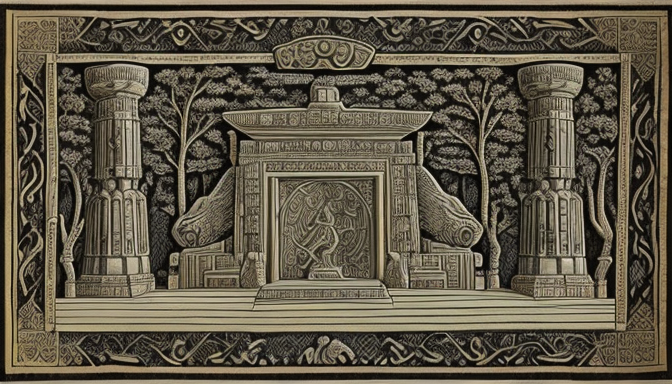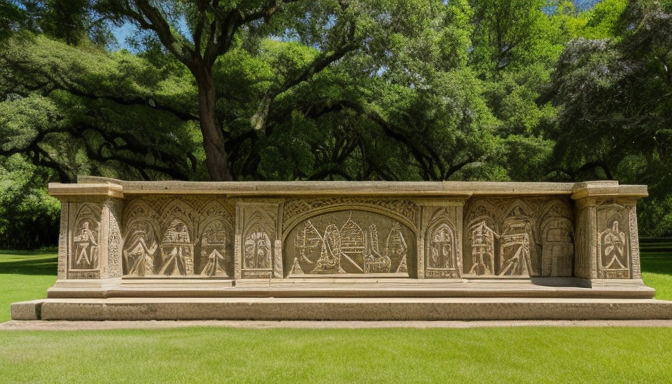Have you ever wondered why ancient myths have such a lasting impact on our lives? These timeless tales are more than just stories; they are windows into the human experience, rich with profound themes and hidden messages. From the epic tales of Greek gods to the intricate narratives of Norse legends, each mythology offers a unique lens through which we can examine our own lives. Think of them as the original storytelling blueprint, capturing the essence of human emotions, struggles, and triumphs.
Take, for instance, the pantheon of Greek mythology. Characters like Hercules and Athena embody virtues that resonate even today. Their journeys reflect our own challenges and aspirations, reminding us that the quest for identity and purpose is universal. Similarly, the rich tapestry of Indian mythology, with its vibrant deities and intricate stories, offers profound insights into the balance between good and evil, emphasizing that our choices shape our destinies.
Moreover, these myths serve as a cultural glue, binding societies together through shared narratives. They invite us to explore our origins and question our beliefs, making them relevant in contemporary discussions about morality and ethics. So, next time you dive into a myth, remember that you’re not just reading a story; you’re engaging with a legacy that has shaped humanity for millennia.
The Role of Archetypes in Mythology
Archetypes are the universal symbols that breathe life into the rich tapestry of mythology. They are the characters and themes that resonate deeply within us, allowing us to connect with the stories told through the ages. Think of them as the blueprints of human experience. Just as a painter uses a palette of colors to create a masterpiece, myth-makers employ archetypes to craft narratives that transcend time and culture. From the brave hero to the wise mentor, these figures mirror our own journeys, embodying the struggles and triumphs we face in our lives.
Consider the hero archetype, for instance. This character often embarks on a quest, facing trials that test their strength and resolve. We see this in ancient myths like Hercules and modern tales like Harry Potter. Each hero’s journey is not just about physical challenges; it’s also a metaphor for personal growth. Through their adventures, we learn about perseverance, courage, and the importance of self-discovery.
Moreover, archetypes serve as a lens through which we can explore the pantheons of ancient myths and the origin stories of fictional worlds. They offer us a deeper narrative immersion, allowing us to understand the values and beliefs of different cultures. By recognizing these archetypes, we can appreciate the timeless nature of human experiences, reminding us that despite the passage of time, our struggles and aspirations remain remarkably similar. So, the next time you dive into a myth, take a moment to reflect on the archetypes at play and how they mirror your own life.

Lessons of Morality and Ethics
When we dive into the rich tapestry of classic mythology, we uncover profound that continue to resonate with us today. These ancient tales are not merely stories of gods and heroes; they are mirrors reflecting the complexities of human nature and the ethical dilemmas we face. For instance, consider the tale of Prometheus, who defied the gods to bring fire to humanity. His act of bravery is a testament to the virtue of selflessness, yet it also serves as a cautionary tale about the consequences of hubris. Just like in our lives, where a noble intention can lead to unforeseen repercussions, Prometheus’s story reminds us to weigh our actions carefully.
Moreover, myths from various cultures often emphasize the importance of virtues such as wisdom, courage, and justice. The Greek pantheon is replete with characters who embody these traits, teaching us that true strength lies not just in physical prowess but in moral integrity. Take, for example, the story of Odysseus, whose journey home was fraught with challenges that tested his cunning and ethical resolve. His adventures illuminate the idea that our choices define us, and navigating life’s trials requires both intellect and principle.
In today’s world, where ethical dilemmas abound, these ancient stories offer timeless guidance. They remind us that the struggles faced by mythical figures are not so different from our own. Whether it’s the battle against greed, the pursuit of justice, or the quest for knowledge, the lessons embedded in these myths encourage us to reflect on our values and the impact of our choices. After all, as the saying goes, “Those who do not learn from history are doomed to repeat it.” So, let us embrace the wisdom of the ancients and apply their teachings to our modern lives.
Frequently Asked Questions
- What are archetypes in mythology?
Archetypes are universal symbols or themes found in myths that resonate with our own life experiences. They represent fundamental human traits and struggles, making the stories feel familiar and relatable.
- How do classic myths convey moral lessons?
Classic myths often illustrate virtues like bravery, wisdom, and justice, while also warning against negative traits such as hubris. These stories serve as timeless reminders of ethical behavior that remain relevant in today’s world.
- Why should we study mythology today?
Studying mythology helps us understand the human condition and the shared experiences that unite us across cultures. It offers valuable insights into our values and the moral dilemmas we face, making it a rich source of wisdom.
- Can myths influence modern storytelling?
Absolutely! Many contemporary stories, from films to novels, draw heavily on mythological themes and archetypes, showcasing the enduring power of these ancient narratives in shaping our imagination and cultural discourse.

Recent Comments